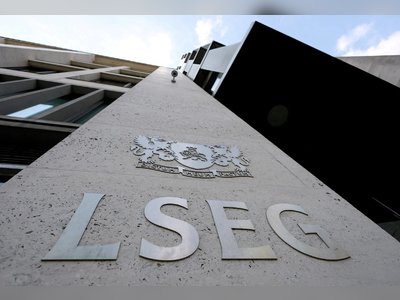Boris Johnson Condemns Western Support for Hamas at Jewish Community Conference
Former UK prime minister calls the adoption of Palestinian recognition by Labour a 'mistake' and criticises media coverage at European Jewish Association event
At a conference hosted by the European Jewish Association in Krakow, former UK prime minister Boris Johnson delivered forceful remarks on Western politics and the conflict in Gaza.
He described what he called a "strange paradox" of middle-class intellectuals wearing keffiyehs, marching in London and advocating for the destruction of Israel.
Johnson argued that the Western elite’s embrace of pro-Palestinian slogans illustrates a deeper moral and intellectual failure.
He said it was "very sad to see this rising" and was urging political leaders to ‘‘tell the truth’’ about the difference between Israel and the Islamist group Hamas—which the former prime minister said remains committed to its charter calling for Israel’s destruction.
Turning to the British Labour Party’s recent recognition of a Palestinian state, Johnson characterised the decision as a mistake driven by internal political pressures rather than strategic diplomacy.
He asserted that the move did not comply with the criteria outlined in the 1933 Montevideo Convention—citing undefined borders and an unclear governing authority—thus failing to meet basic international law standards.
He dismissed suggestions that the step was connected to Brexit trade negotiations with France, adding dismissively: "If it had, we would have kicked their backsides."
Johnson also criticised the British public broadcaster, stating that it had made a ‘‘corporate decision’’ to frame the Gaza conflict in a way that, in his view, caused ‘‘huge damage’’.
He accused the broadcaster of failing to describe Hamas explicitly as a terrorist organisation and said this ambiguity had become a contributing factor to rising antisemitism.
In his remarks he echoed warnings from conference chairman Rabbi Menachem Margolin, who told attendees that ‘‘this is the worst time for Jews since [World War II]’’ and cited polling that nearly one in five Europeans now blame Jews for the Gaza war.
In closing, Johnson appealed to European governments to embrace what he called ‘‘aggressive philosemitism’’.
He asked when was the last time a European leader stood up and said how wonderful it is to have a thriving Jewish community or invited more Jews to live in Europe.
He said it was time for a change in rhetoric, moving from passive protection to proactive celebration.
While Johnson’s remarks reflect his longstanding support for Israel and recognition of antisemitism’s evolving forms, the broader political debate in Britain and across Europe continues to grapple with the balance between supporting Palestinian aspirations and defending Jewish communities.
His intervention at the Krakow conference adds a distinct voice to that debate, emphasising the need for clarity in foreign-policy decisions and cultural leadership in a fracturing landscape.
He described what he called a "strange paradox" of middle-class intellectuals wearing keffiyehs, marching in London and advocating for the destruction of Israel.
Johnson argued that the Western elite’s embrace of pro-Palestinian slogans illustrates a deeper moral and intellectual failure.
He said it was "very sad to see this rising" and was urging political leaders to ‘‘tell the truth’’ about the difference between Israel and the Islamist group Hamas—which the former prime minister said remains committed to its charter calling for Israel’s destruction.
Turning to the British Labour Party’s recent recognition of a Palestinian state, Johnson characterised the decision as a mistake driven by internal political pressures rather than strategic diplomacy.
He asserted that the move did not comply with the criteria outlined in the 1933 Montevideo Convention—citing undefined borders and an unclear governing authority—thus failing to meet basic international law standards.
He dismissed suggestions that the step was connected to Brexit trade negotiations with France, adding dismissively: "If it had, we would have kicked their backsides."
Johnson also criticised the British public broadcaster, stating that it had made a ‘‘corporate decision’’ to frame the Gaza conflict in a way that, in his view, caused ‘‘huge damage’’.
He accused the broadcaster of failing to describe Hamas explicitly as a terrorist organisation and said this ambiguity had become a contributing factor to rising antisemitism.
In his remarks he echoed warnings from conference chairman Rabbi Menachem Margolin, who told attendees that ‘‘this is the worst time for Jews since [World War II]’’ and cited polling that nearly one in five Europeans now blame Jews for the Gaza war.
In closing, Johnson appealed to European governments to embrace what he called ‘‘aggressive philosemitism’’.
He asked when was the last time a European leader stood up and said how wonderful it is to have a thriving Jewish community or invited more Jews to live in Europe.
He said it was time for a change in rhetoric, moving from passive protection to proactive celebration.
While Johnson’s remarks reflect his longstanding support for Israel and recognition of antisemitism’s evolving forms, the broader political debate in Britain and across Europe continues to grapple with the balance between supporting Palestinian aspirations and defending Jewish communities.
His intervention at the Krakow conference adds a distinct voice to that debate, emphasising the need for clarity in foreign-policy decisions and cultural leadership in a fracturing landscape.










